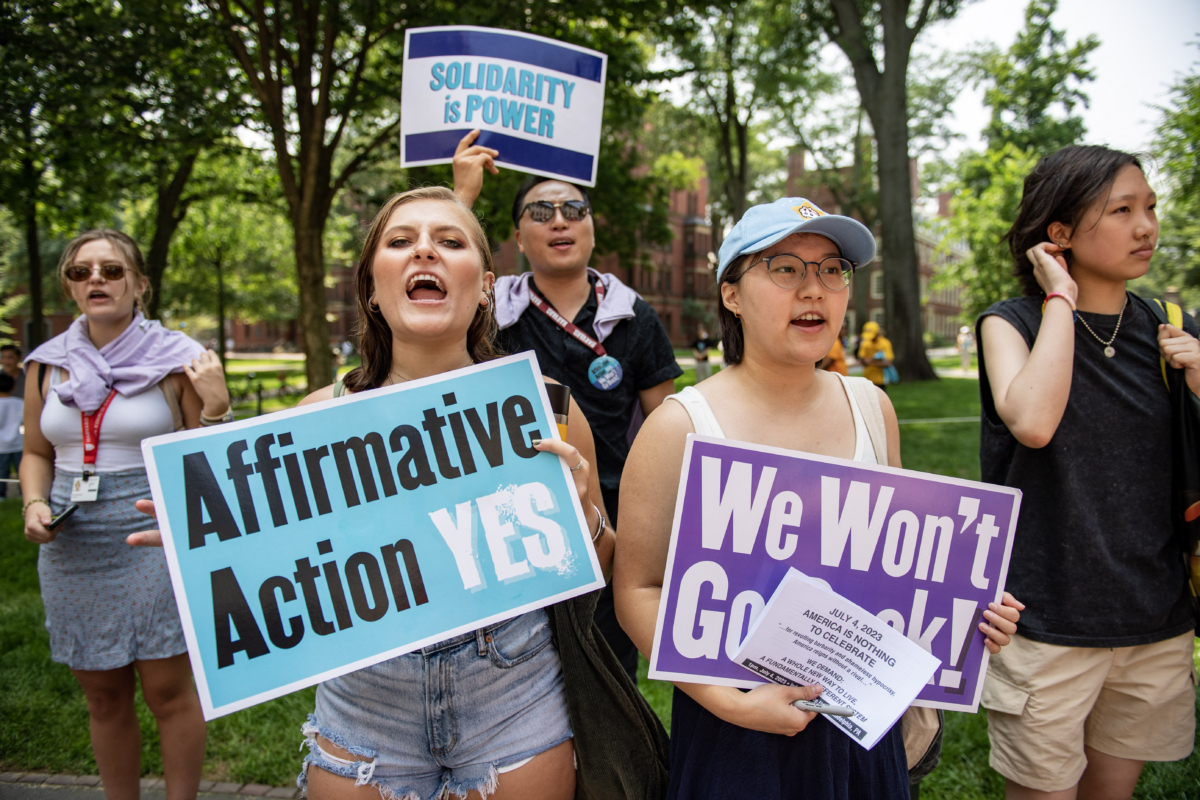


On Wednesday, Wesleyan University announced an end to preferential legacy admission, calling it “the easy part” in its pursuit of diversity.
“In the wake of the recent Supreme Court decision regarding affirmative action, we believe it important to formally end admission preference for ‘legacy applicants,'” wrote Wesleyan President Michael Roth, while noting that, as a highly selective university, legacy status had played a small role in admissions in recent history.
“We still value the ongoing relationships that come from multi-generational Wesleyan attendance, but there will be no ‘bump’ in the selection process. As has been almost always the case for a long time, family members of alumni will be admitted on their own merits.”
It’s not the only college that has recently done so.
The Tribune Review recently reported that Carnegie Mellon University has updated its admissions decisions process, now designating legacy status as “not considered,” whereas, in previous years, the university viewed it as “important” or “considered” as marked on Common Data Set.
Even prior to the ruling, some high-profile schools have announced an end to the decision in recent years, including Amherst, MIT, and John Hopkins University.
Leading up to and immediately after the Supreme Court’s highly anticipated ruling on the use of race in college admissions, in which it ultimately struck down affirmative action, both supporters and critics of the ruling were vocal about the role of preferential legacy admission, some calling it a bigger problem than weighing race as an admissions factor.
Students for Fair Admissions, the organization that sued Harvard College and the University of North Carolina—Chapel Hill for race-based admissions formulas, said in its statement after its legal victory that legacy admissions would be the next target.
“For decades, our nation’s most elite universities have given preferences to the children of alumni, faculty and staff, athletes, and notably, substantial donors,” it reads.
“The elimination of these preferences is long overdue ,and SFFA hopes that these opinions will compel higher education institutions to end these practices.”
Days after the Supreme Court’s ruling, activists filed a complaint against Harvard for granting students “special preferences” if they are related to wealthy donors or alumni, noting that the policies “disproportionately advantage” white applicants.
Doing away with these preferences has seemingly wide support.
Sen. Tim Scott (R-S.C.) spoke on Fox after the high court’s ruling and said Harvard could eliminate these programs to “improve the footprint of Harvard.”
“Let’s look at the legacy program. Let’s look at the fact that the professors’ kids can go there as well.”
Former First Lady Michelle Obama shared a statement on Twitter, writing she had been “one of the few black students” on campus and “I knew I’d worked hard for it. But still, I sometimes wondered if people thought I got there because of affirmative action.”
She noted that students had been and continue to be admitted with other special considerations. “Some have parents who graduated from the same school. Others have families who can afford coaches to help them run faster or hit a ball harder. Others go to high schools with lavish resources for tutors and extensive standardized test prep that help them score higher on college entrance exams.”
“We don’t usually question if those students belong. So often, we just accept that money, power, and privilege are perfectly justifiable forms of affirmative action, while kids growing up like I did are expected to compete when the ground is anything but level,” she wrote.
Justice Neil Gorsuch, in an opinion concurring with the majority opinion, wrote, “[Harvard’s] preferences for the children of donors, alumni, and faculty are no help to applicants who cannot boast of their parents’ good fortune or trips to the alumni tent all their lives. While race-neutral on their face, too, these preferences undoubtedly benefit white and wealthy applicants the most.”
Justice Sonia Sotomayor, in a dissenting opinion, wrote, “Underrepresented minorities are less likely to have parents with a postsecondary education who may be familiar with the college application process. Further, low-income children of color are less likely to attend preschool and other early childhood education programs that increase educational attainment.”
Many of these schools ending preferential legacy admissions shared in those same announcements their commitment to pursuing racial diversity on campus.
“By recruiting students, faculty and staff with diverse life experiences, attributes, and points of view, we continue to build a diverse, energetic learning environment comprised of people who think critically and creatively and who value independence of mind and generosity of spirit.,” wrote Wesleyan’s Mr. Roth, emphasizing that the school has “never fixated on checking a box” indicating race or legacy status.
Amherst’s 2021 announcement to drop consideration of legacy status was coupled with news of a $71 million expansion in financial aid.
“Our admission team is confident that by both ending legacy preference and clearly showing that most students can experience an Amherst education with significant scholarship support, we will see a further increase in both the diversity and excellence of our extraordinary applicant pool and, ultimately, in the enrolled student community on campus,” stated Matthew McGann, dean of admission and financial aid.
John Hopkins University shared in its formal announcement of the practice’s end that its president Ronald Daniels had already started to move away from it in 2009, being unused to “this form of hereditary privilege in American higher education.
“The effort is tied to Daniels’ advocacy for higher education practices that support democracy and social mobility,” the university stated.
